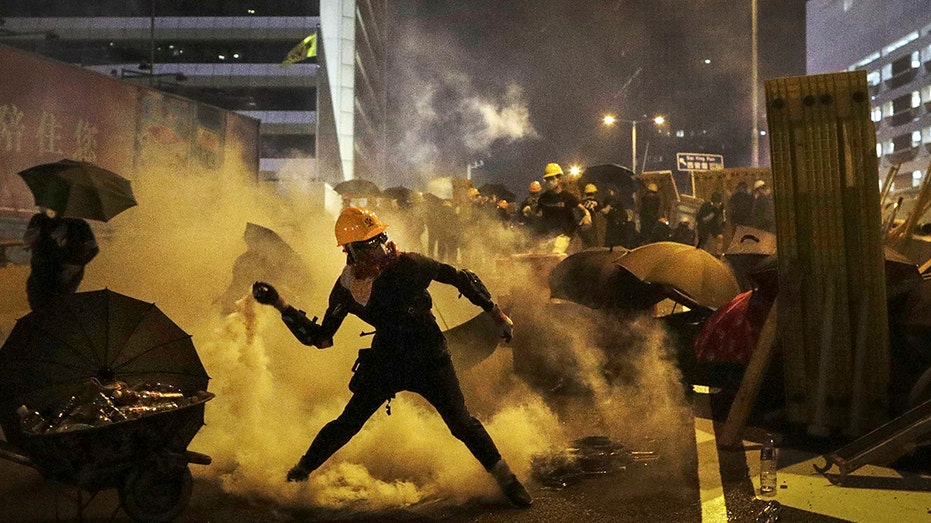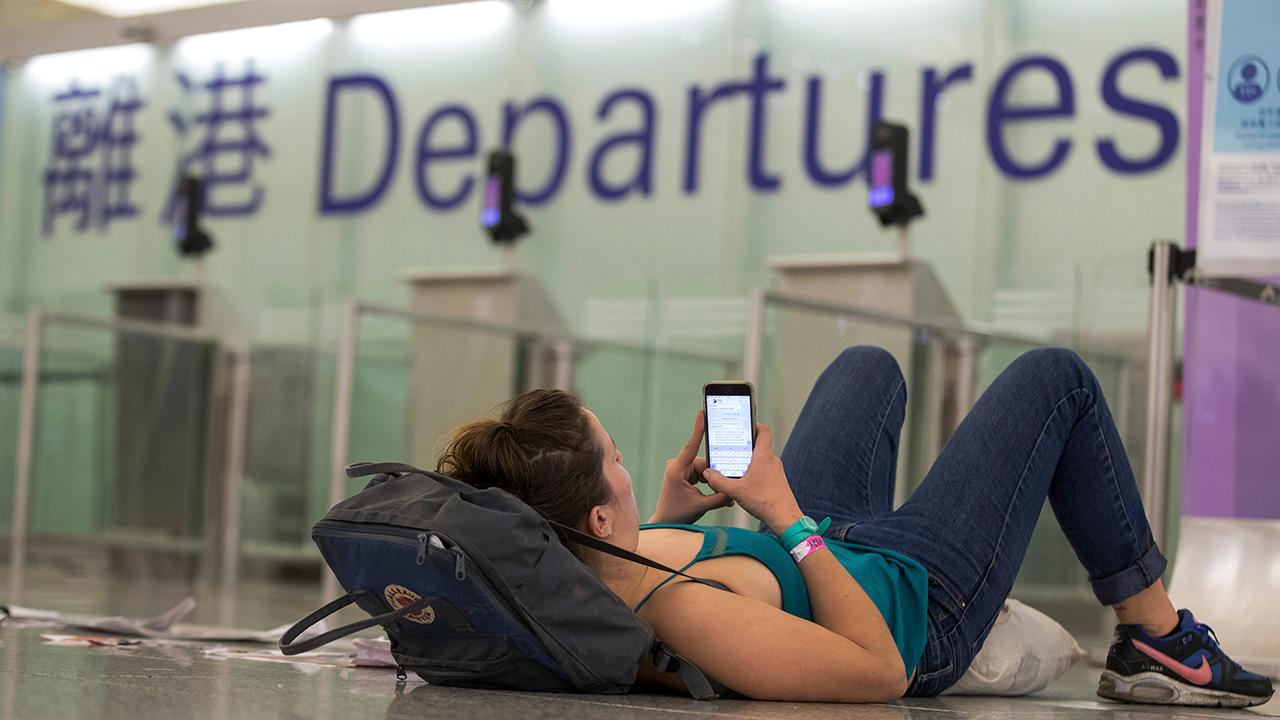Hong Kong protests: The economic consequences
A continuation of anti-government protests in Hong Kong – which shut down one of the world’s busiest airports – may have “catastrophic” economic consequences, experts warn.
All departing flights were canceled on Monday, leaving people stranded, thanks to a demonstration involving thousands – the latest in a string of recent uprisings in Hong Kong. Leadership from mainland China said the protesters had begun to “show signs of terrorism.”
With protests expected to continue, experts believe it will add serious pressure to Hong Kong's economy, which is already showing hints of distress.
“It’s not only catastrophic in the short-term, everybody who’s missing their plans, businesses that can’t have meetings, but in the long-term – if you think about the multinationals who are headquartered in Hong Kong – are they going to think, should they move to Singapore? Should they move to Taiwan? Should they move to Tokyo?” National Committee on U.S.-China Relations president Steve Orlins told FOX Business.
It could also impact where investors decide to put their money.
“People in Hong Kong are trying to get their money out, and … they’re also trying to get themselves out,” Point Bridge Capital Founder and CEO Hal Lambert told FOX Business. “Think about it from an investor’s perspective, who’s going to invest right now in Hong Kong if you’re a corporation from outside Hong Kong?”

A protester throws a tear gas canister which was fired by riot police during a protest in Hong Kong, Sunday, July 28, 2019. Police fired tear gas at protesters in Hong Kong on Sunday for the second night in a row in another escalation of weeks-long p
Hong Kong is on the brink of falling into recession – with experts now forecasting that its economy could contract in the third quarter – for the second such consecutive decline, as reported by The Wall Street Journal.
The Hang Seng index is down more than 7 percent so far this month.
CLICK TO GET THE FOX BUSINESS APP
The protest movement started in June over a bill that would allow suspects to be tried in mainland China. Since then, other issues have added fuel to the protests, including how the police have responded to demonstrators.




















